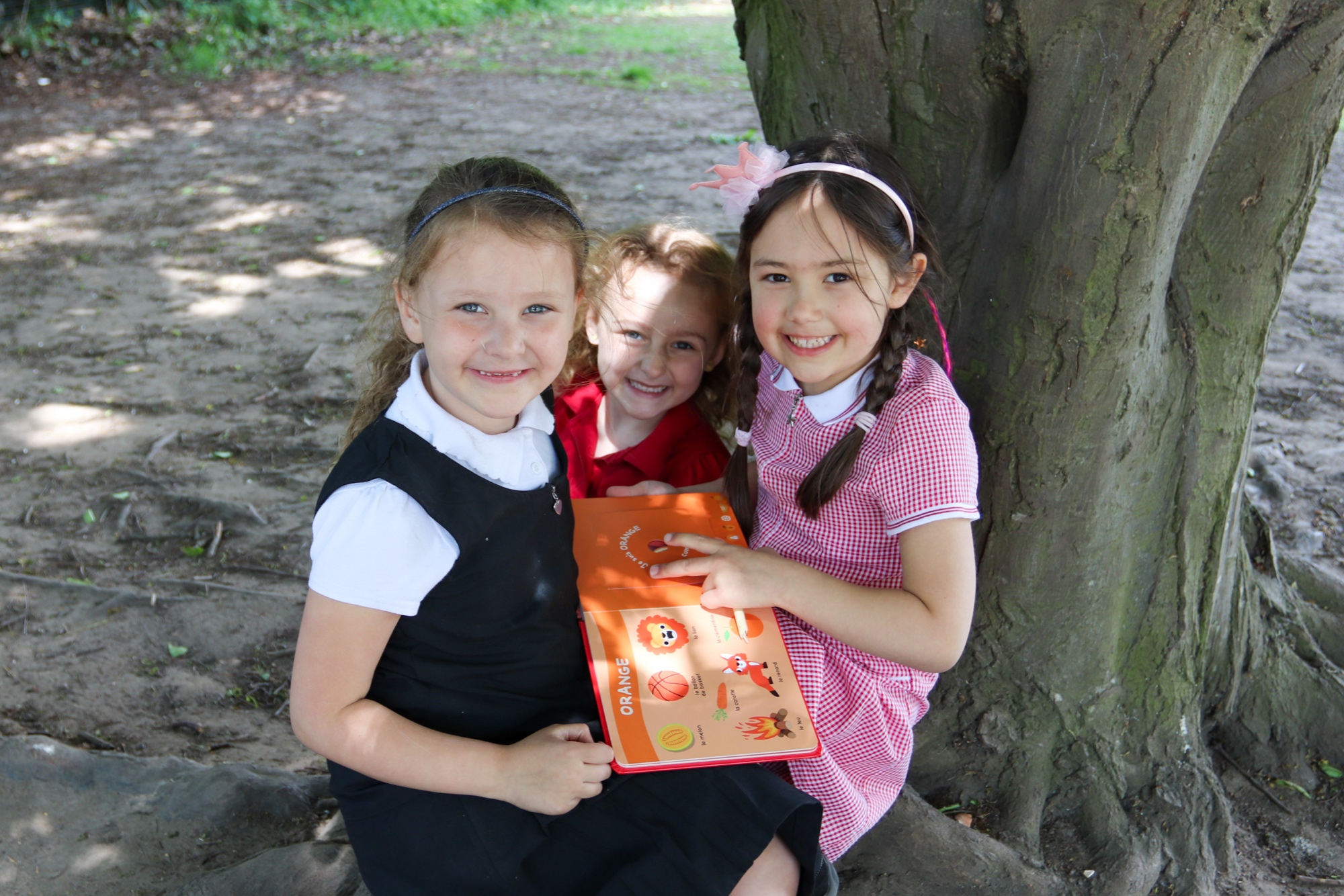English and the Arts
English

Please look at our curriculum page for an overview of the way that we have split our Arts curriculum into teaching units across the school.
English
All children have daily English lessons. In Foundation Stage, this may take place throughout the day, whilst in Years 1 – 6, a dedicated lesson and further cross-curricular opportunities are designed to develop the children’s writing and reading skills. In KS2, separate guided and independent reading activities also take place every day.
We use the progression grids in the Learn-AT English Framework document (see below) to ensure the skills for each year group are taught. With the exception of the spelling scheme of work, we only state the whole year’s content, rather than the progression at points throughout the year. This is because we want skills to be taught and retaught in an iterative process during the year and because embedding skills in context and with purpose is the best way for children to learn.
Reading: We aim for all children to become fluent, independent, enthusiastic and critical readers of stories, poetry, drama and non-fiction texts. The children are taught a range of reading strategies including phonic knowledge, grammatical awareness, word recognition and contextual understanding. Children will have opportunities to read and respond to a range of literature and non-fiction texts. Please see our separate phonics and reading document for more details.
Spoken Language: We encourage children to listen attentively and respond to stories, plays and poems. They have many opportunities to discuss, explain and describe situations whilst also listening to the viewpoints of others. They learn to use language in imaginative ways and express their ideas and feelings through drama, and through reciting poems and stories.
Spelling: We know that supporting children in making automatic choices about the way words are spelled is key to developing automaticity in writing. Spelling is taught discretely and regularly throughout the school.
The phonics lessons that the children have in their early years at school feed into more focused spelling lessons, beginning in Year 2. We use a Linguistic Phonics programme called Sounds-Write which is a master approach to learning how to read. The children learn to break words down into their constituent sounds and syllables and are able to write these down. To develop their orthography skills, the children use an approach called Word Study, learning to recognise patterns in spellings and to identify what makes a word unique. This also involves understanding the meanings behind parts of words: knowing how a word has evolved in our language is an important step towards understanding how it is spelled as well as how it can be used. Investigating and sorting words also supports children in their vocabulary development.
Sometimes the children are given some words to rehearse at home using Word Study techniques. A few regularly occurring but unusually spelled words need learning out of context but, for the most part, we aim to support the children in being aware of the choices they have about ways of spelling different sounds and in feeling confident about how to apply them correctly most of the time.
Writing gives children a voice, an ability to share their thoughts and ideas. Children use their writing skills in almost all areas of the curriculum and we want our children to be able to communicate with others confidently and creatively through their writing. Therefore, we place importance on making writing meaningful and emphasising its purpose – to entertain, to persuade, to inform or to discuss. Children write every day across the curriculum.
Underpinning our writing curriculum is our reading curriculum: we know children’s reading experiences are closely linked to the progress they make in writing. Carefully chosen, high-quality and challenging texts support the development of the children’s vocabulary and writing techniques. They expose children to a breadth of literature and allow them to engage with authors and the way they write.
Learning to write is complex. Central to our children’s learning is achieving increasing fluency in the skills of handwriting, grammar and punctuation. Each year group has a specific set of skills to learn in order to ensure a steady progression through school. Grammar and punctuation are taught in context and linked to the texts children are reading in class. We have grammar knowledge organisers that we share with parents at home to reinforce the work we are doing in school.
Children also explore writing through drama and the spoken word. They are encouraged to articulate their thoughts and experiment with ideas and techniques. Clear teacher modelling of writing ensures that children are well supported in creating their own compositions before being able to work independently.
